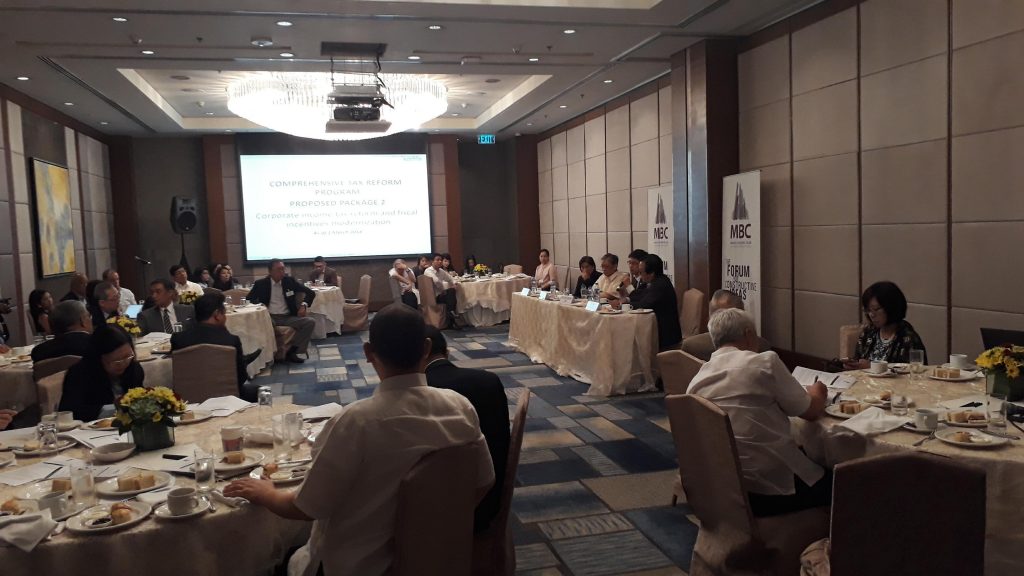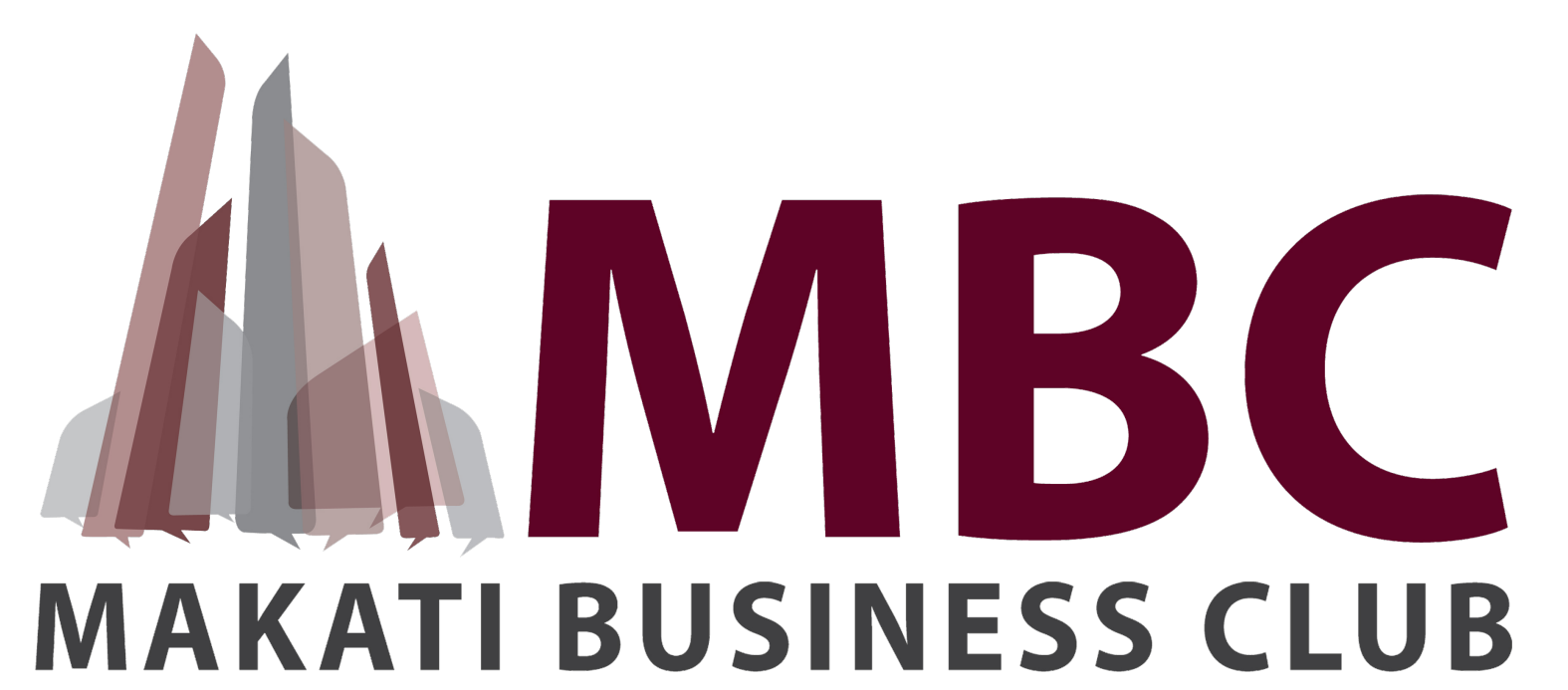
1 March 2018 – The Makati Business Club hosted today a roundtable meeting with Finance Undersecretary Karl Kendrick Chua to discuss the proposed reforms under the Tax Reform for Acceleration and Inclusion (TRAIN) Package 2. This round of proposed tax measures will affect corporate income tax, fiscal and non-fiscal incentives, and tax facilitation.
“Package 2 is all about fair and accountable tax incentives,” said Usec. Chua. “This government is pro-investment to attain higher growth and lower poverty and inequality. But instead of giving incentives in perpetuity to a select set of industries we prefer to build infrastructure and invest in education and health to give all businesses a level-playing field.”
The proposal includes lowering the corporate income tax rate to 25% while broaden tax base by making incentives more accountable. Accountability means firms must satisfy the four principles: performance-based, time-bound, targeted, and transparent. According to USec. Chua, a rigorous cost-benefit analysis will be required to determine which sectors can make a strong positive spillover to the economy and, thus, would be prioritized under the Strategic Investments Priorities Plan (SIPP).
The Philippine corporate tax system is currently governed by 123 investment-related fiscal incentives law. Qualified registered firms get to enjoy income tax holiday for up to 12 years, after which a 5% tax on gross income earned is given, tax investment allowances, high deductions on R&D, training and labor expenses, accelerate depreciation, export subsidies, and customs duty exemption. In 2015, the amount of tax incentives granted reached P104.4 billion, 64% of which were granted by the Philippine Economic Zone Authority (PEZA). Data from the Department of Finance (DOF) showed the manufacturing sector as the top beneficiary of tax incentives (29.4%), followed by the Services sector (13.4%).
The business leaders present in the meeting raised concerns about the lack of predictability and certainty under TRAIN Package 2, particularly in imposing conditions before lowering CIT rate which could discourage potential investors. There was a suggestion to gradually lower the CIT rate to 20% to another four years after reaching 25% rate, and this was welcomed by Undersecretary Chua.
On the other hand, some exporters made an argument on why the zero VAT exemption should not be treated as an incentive but as a normal operation for goods and services exported or not consumed in the country.
The roundtable discussion forms part of MBC’s consultation with its members before finalizing a position paper to submit to the DOF. “We need to come up with solutions in raising revenues and plug the leaks, but in the process make sure that legitimate investors are not severely impacted and that we attract more investors to the country.” MBC Chairman Edgar Chua said.
